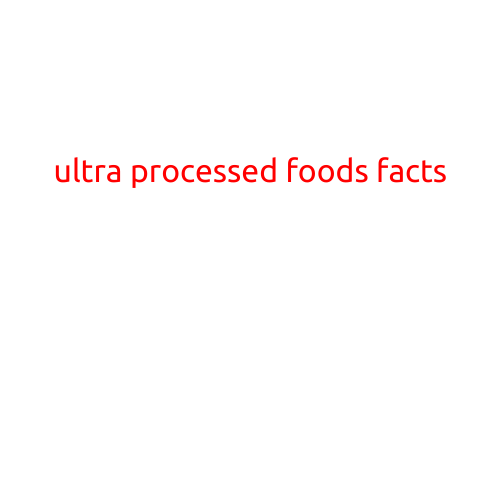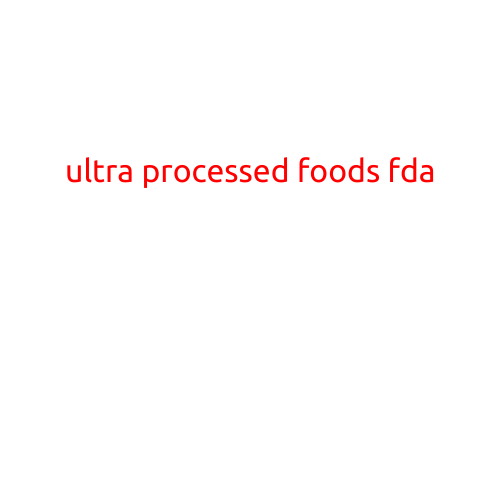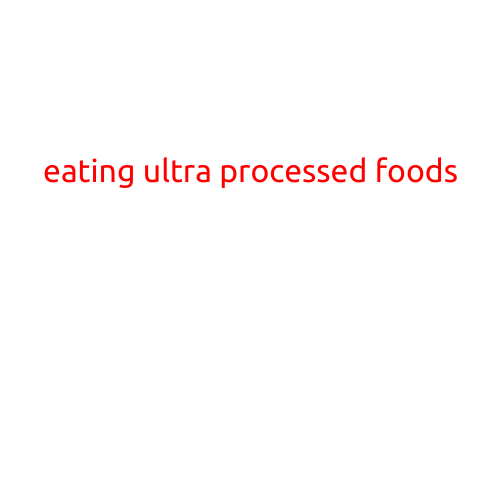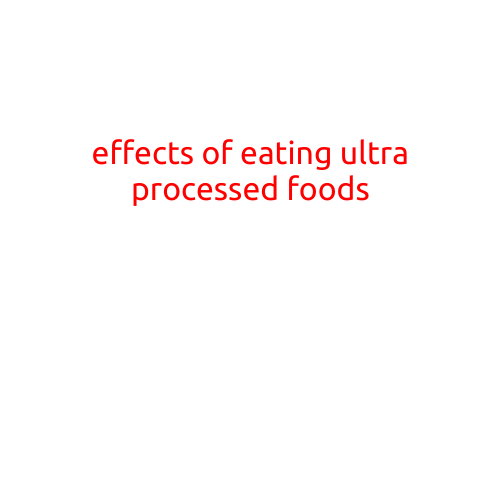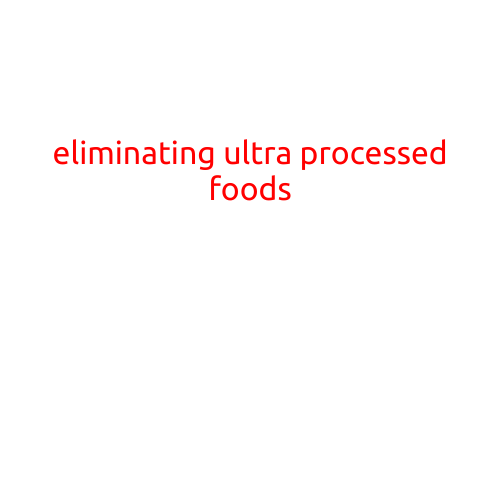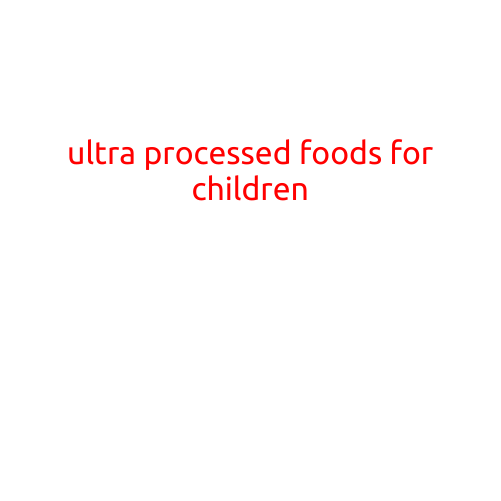
The Risks of Ultra Processed Foods for Children: A Growing Concern
As parents, it’s natural to want the best for our children, including a diet that is nutritious and healthy. However, with the increasing availability and affordability of ultra-processed foods, many children’s diets are now dominated by these convenient, yet dangerous, foods. Ultra-processed foods are those that have undergone significant processing and modification, often resulting in a lack of essential nutrients and a high content of added sugars, salt, and unhealthy fats.
What are Ultra Processed Foods?
Ultra-processed foods are categorized by the NOVA food classification system, which groups food into four categories: unprocessed or minimally processed, processed, processed culinary, and ultra-processed. Examples of ultra-processed foods include:
- Breakfast cereals
- Frozen pizzas
- Sugary snacks
- Baked goods
- Condiments
The Impact of Ultra Processed Foods on Children’s Health
Consuming ultra-processed foods regularly has been linked to a range of negative outcomes for children, including:
- Obesity and Overweight: Ultra-processed foods are high in calories, added sugars, and unhealthy fats, which can contribute to rapid weight gain and increased risk of obesity.
- Nutrient Deficiencies: Ultra-processed foods are often lacking in essential nutrients, such as vitamins, minerals, and fiber, which can lead to deficiencies and related health problems.
- Gastrointestinal Problems: The high levels of added sugars and artificial preservatives in ultra-processed foods can irritate the digestive system, leading to bloating, constipation, and other gastrointestinal issues.
- Increased Risk of Chronic Diseases: Regular consumption of ultra-processed foods has been linked to an increased risk of developing chronic diseases, such as heart disease, type 2 diabetes, and certain types of cancer, later in life.
Why are Ultra Processed Foods So Prevalent in Children’s Diets?
Several factors contribute to the widespread consumption of ultra-processed foods among children:
- Convenience: Ultra-processed foods are often quick and easy to prepare, making them a convenient option for busy parents.
- Marketing: The food industry heavily markets ultra-processed foods to children, making them appealing and desirable.
- Lack of Education: Many parents may not be aware of the negative health effects of ultra-processed foods or the importance of a balanced diet.
What Can Parents Do?
To protect your child’s health and well-being, consider the following strategies:
- Read Food Labels: Be aware of the ingredients and nutritional content of packaged foods. Choose products with wholesome ingredients and minimal processing.
- Cook from Scratch: Prepare healthy, home-cooked meals using fresh ingredients to ensure a balanced diet.
- Encourage Healthy Snacks: Offer fruits, vegetables, nuts, and whole grain crackers as healthy snack options.
- Set a Good Example: Model healthy eating habits yourself, as children often mimic their parents’ behavior.
- Limit Screen Time: Establish screen-free meals and limit screen time to reduce reliance on ultra-processed foods.
Conclusion
Ultra-processed foods pose significant risks to children’s health, from obesity and nutrient deficiencies to increased risk of chronic diseases. By being mindful of the foods we feed our children and making conscious choices, we can help them develop healthy eating habits that will benefit them throughout their lives. By limiting ultra-processed foods and emphasizing whole, nutritious foods, we can give our children the best possible start in life.
